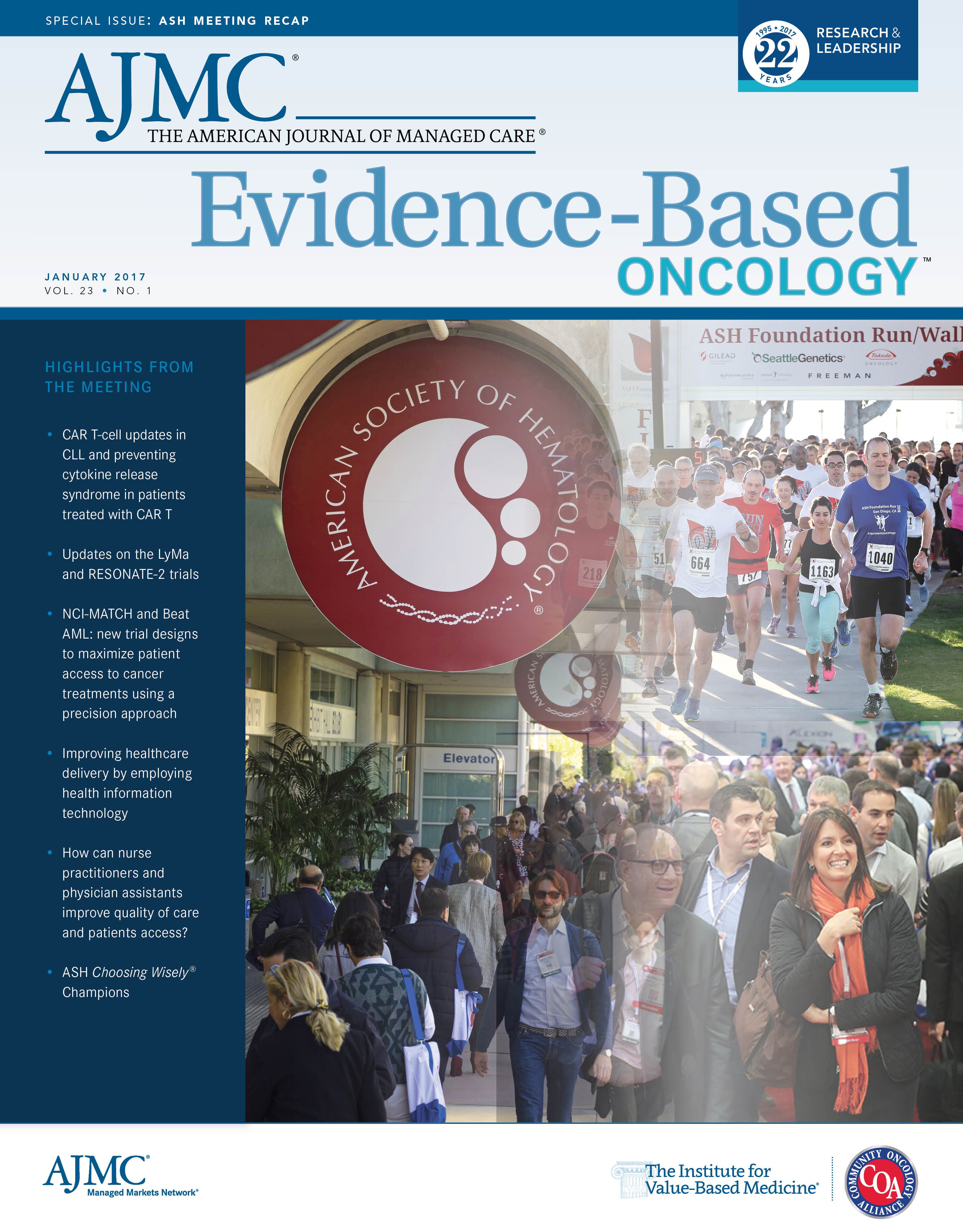- Center on Health Equity & Access
- Clinical
- Health Care Cost
- Health Care Delivery
- Insurance
- Policy
- Technology
- Value-Based Care
American Society of Hematology's Tenets for Hematologists to Choose Wisely
Initiated by the American Board of Internal Medicine, Choosing Wisely® is a campaign that has seen participation by a number of different national medical organizations to promote conversations between clinicians and patients to ensure adequate, evidence-based care.
INITIATED BY THE AMERICAN BOARD OF INTERNAL MEDICINE,
Choosing Wisely® is a campaign that has seen participation by a number of different national medical organizations to promote conversations between clinicians and patients to help them choose care that:
- Is evidence-based
- Does not duplicate other tests or procedures that the patient may have already received
- Does not harm the patient
- Is absolutely essential1
A task force appointed by the American Society of Hematology has developed 10 recommendations2 for hematologists to be aware of and to follow:
1. Don’t transfuse more than the minimum number of red blood cell (RBC) units necessary to relieve symptoms of anemia or to return a patient to a safe hemoglobin range (7 to 8 g/dL in stable, noncardiac in-patients).
Transfuse the smallest effective dose of RBCs, because liberal transfusion does not improve outcomes, could harm patients, and generates costs.
2. Don’t test for thrombophilia in adult patients with venous thromboembolism (VTE) occurring in the setting of major transient risk factors (surgery, trauma or prolonged immobility).
Thrombophilia testing is costly and can harm patients; it does not change management of VTEs that occur in the setting of major transient risk factors. For complex cases, however, patients and clinicians should seek guidance from an expert in VTE.
3. Don’t use inferior vena cava (IVC) filters routinely in patients with acute VTE. IVC filters can harm the patient and are costly.
They are not recommended unless the patient has acute VTE and an anticoagulant is contraindicated. Retrievable filters are recommended over permanent filters for patients experiencing pulmonary embolism (PE), and they should be removed when the risk of PE has resolved.
4. Don’t administer plasma or prothrombin complex concentrates for non-emergent reversal of vitamin K antagonists (ie, outside of the setting of major bleeding, intracranial hemorrhage or anticipated emergent surgery).
Blood products can harm patients and are costly. They are not typically indicated for the reversal of vitamin K antagonists.
5. Limit surveillance computed tomography (CT) scans in asymptomatic patients following curative-intent treatment for aggressive lymphoma.
CT surveillance is expensive and does not improve survival in patients in remission from aggressive non-Hodgkin lymphoma. Moreover, they can increase the risk of radiation exposure. As the risk of relapse decreases with time, CT scans in asymptomatic patients who are at least 2 years beyond treatment completion is not advised.
6. Don’t treat with an anticoagulant for more than 3 months in a patient with a first venous thromboembolism (VTE) occurring in the setting of a major transient risk factor.
Patients with a first VTE triggered by a major, transient risk factor are at low risk of recurrence once the risk factor has resolved and an adequate treatment regimen with anticoagulation has been completed. An appropriate regimen of anticoagulation can avoid unnecessary harm, reduce health care expenses, and improve quality of life.
7. Don’t routinely transfuse patients with sickle cell disease (SCD) for chronic anemia or uncomplicated pain crisis without an appropriate clinical indication.
Patients with SCD are more vulnerable to harms of RBC transfusion, such as alloimmunization to minor blood group antigens and iron overload. Patients with SCD whose baseline hemoglobin (Hb) ranges between 7-10 g/dl can tolerate further reductions without symptoms of anemia. Intravenous drips in these patients can further decrease their Hb, and so routine transfusion in these patients is contraindicated.
8. Don’t perform baseline or routine surveillance CT scans in patients with asymptomatic, early-stage chronic lymphocytic leukemia (CLL).
In patients with asymptomatic, early-stage CLL, baseline and routine surveillance CT scans do not impact survival and are not important to stage or prognosticate patients. CT scans expose patients to unnecessary radiation and may not provide clinically relevant information—in addition to being expensive. Instead, clinical staging and blood monitoring should be performed.
9. Don’t test or treat for suspected heparin-induced thrombocytopenia (HIT) in patients with a low pretest probability of HIT.
The 4Ts score—thrombocytopenia, timing of platelet count, thrombosis or other sequelae, and other cause of thrombocytopenia—is recommended to calculate the pretest probability of HIT in patients suspected of HIT. Further investigation is not recommended if the pretest 4T score is low (between 0 and 3). Heparin should not be discontinued or non-heparin anticoagulant should not be initiated in these low-risk patients.
10. Don’t treat patients with immune thrombocytopenic purpura (ITP) in the absence of bleeding or a very low platelet count.
Treatment for ITP should prevent bleeding episodes and improve patient quality of life. Unnecessary treatment can be harmful and costly—so decisions to treat ITP should be based on an individual patient’s symptoms, bleeding risk, social factors, side effects of possible treatments, upcoming procedures, and patient preferences. Unless an adult (platelet count greater than 30,000 µL) has to undergo surgery or other invasive procedures, or have a risk of bleeding, ITP is not indicated. REFERENCES
- Choosing Wisely®: An initiative of the ABIM Foundation. Choosing Wisely® website. http://www.choosingwisely.org/about-us/. Accessed December 21, 2016.
- American Society of Hematology: then things physicians and patients should question. Choosing Wisely® website. http://www.choosingwisely.org/societies/american-society-of-hematology/. Published December 4, 2013 and December 3, 2014. Accessed December 20, 2016.


